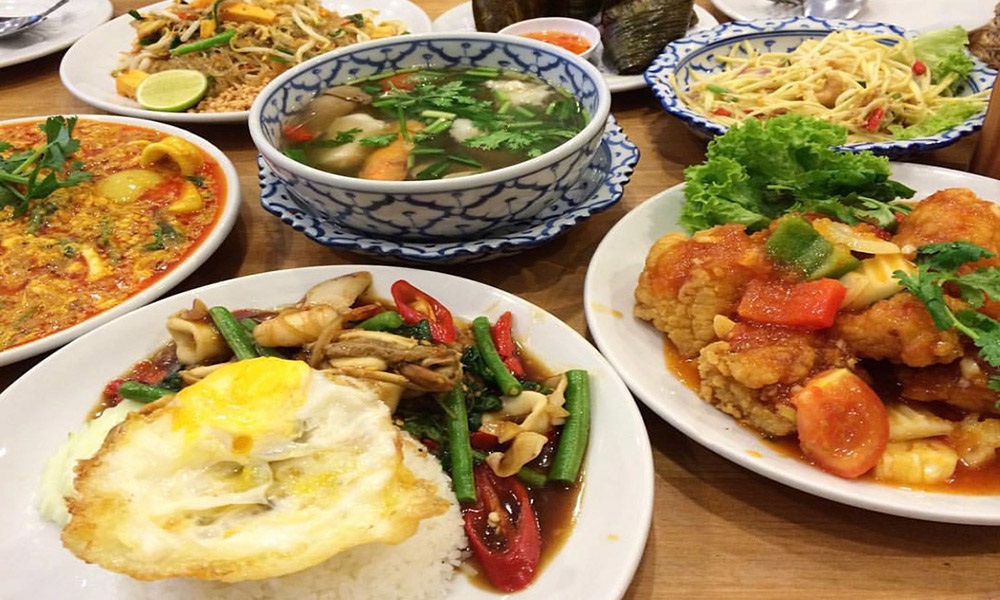By Jie Yi
Yue Fei ( 1103-1141 ) was a general and military expert who lived during the Southern Song Dynasty. He was well-known for mounting a successful defence against the Jin (Jurchen) invaders during that time.
Regarded as a Chinese hero, Yue Fei has been deeply respected for his loyalty to his country. While leading the northern expedition against the Jurchen invaders, Yue Fei wrote the poem “Man Jiang Hong” (满江红), which expresses his grief and indignation at the invaders of his country. The poem is a masterpiece that has been held with deep respect and admiration through the ages.
Yue Fei’s soldiers were deeply admired during his time. There was a well-known saying at the time
,”It is easier to shake Mount Tai than to shake Yue Fei’s army,”
which showed how highly the people respected Yue Fei and how much the enemy feared him.

A Brief Account of Yue Fei’s Life
In the first year of the reign of Song Emperor Qinzong (钦宗), Yue Fei joined the army to defend the country against an invasion by the Jurchens. He was recognised for his continuous accomplishments, and was soon promoted by Marshal Zong Ze (宗泽) to the position of tongzhi (equivalent to an army commander today).

In 1126, Zong Ze passed away, and the Jurchen general, Wanyan Zongmi, attacked the Song Dynasty again. The Song army suffered a heavy defeat, and Emperor Gaozong fled. At that time, Yue Fei was serving in the Jianghuai region and he led his army to fight against the Jurchen invaders in Guangde (part of Anhui Province today) and Yixing (part of Jiangsu Province today). He defeated the Jurchen army in the battle at Qingshuiting (清水亭) and recovered Jiankang. His army won four more battles as they chased the Jurchen chief, Wuzhu. Yue Fei was then promoted to become head of the Tongtai region.
In 1133, the illegitimate government of Liu Yu (刘豫), who had the backing of the Jurchens, seized Xiangyang (in current Hubei Province) and the nearby counties. The next April, Yue Fei led a northern expedition and defeated Liu Yu, recovering the territory of six counties. He was promoted to Military Commissioner of the Qingyuan Army for his accomplishments.
In the summer of 1135, the Song Court suspected that Yang Yao was colluding with the illegitimate Qi to overthrow the Southern Song. Yue Fei received orders from the court and defeated Yang Yao’s army, thus completely clearing out any internal trouble. In 1136, Yue Fei launched a sudden attack on Liu Yu’s army, using part of his troops to attack Caizhou (Runan in Henan Province today) while his main force went from Xiangyang to attack Yiyang (Song County in Henan today). He recovered a large stretch of territory in Yuxi and Shannan. In 1137, Yue Fei seized the opportunity when the Jurchens sacked Liu Yu and came up with the idea of restoring central China. He petitioned Emperor Gaozong several times to oppose a peace treaty with the Jurchens, but his petition was rejected by the Emperor and Premier Qin Hui (秦桧).

In 1140, the Jurchen chief, Wanyan Zong (完颜宗), violated the treaty and launched an attack on the Southern Song. Yue Fei sent his men to make an alliance with the northern rebels to attack the Jurchen army from behind, while he led his main force northbound and defeated the main Jurchen forces in the battles in Yancheng and Yingchang. However, just when Yue Fei’s army was about to cross the river to chase after the defeated enemy, Emperor Gaozong and Qin Hui ordered all his troops to return. Yue Fei’s army had to retreat in the end, and his strategy to recover Central China failed on the verge of success.
The next year (1141), when Yue Fei returned to the capital Lin’an, he was removed from his military position. On December 29, Yue Fei was executed by Gao Zong and Qin Hui for “unfounded guilt”. His son, Yue Yun (岳云), and General Zhang Xian (张宪) were also killed. After Emperor Xiaozong (孝宗)took the throne, he redressed and exonerated Yue Fei. In 1178, Yue Fei was bestowed a posthumous title, Wumu (武穆) (Solemn and Valiant). In 1204, Emperor Ningzong (宁宗) granted him the posthumous title “King of E” . In 1225, Emperor Lizong (理宗) changed the posthumous title to “Zhongwu” (忠武) (Loyal and Valiant).
Fairness in Rewards and Punishments; Being Loyal to One’s Wife
There was a saying among Yue Fei’s army:
“I would rather freeze to death than pull down people’s houses; I would rather starve to death than rob the people.”
This was a true description of Yue Fei’s army. Anyone who damaged crops or interfered with farming activities would be beheaded.
Yue Fei’s army was extremely popular, and wherever they went they were cheered on by the populace. When his soldiers fell sick, Yue Fei would personally console them; when they had family hardships, Yue Fei would give them aid in the form of money and cloth; when a general died in battle, he would compensate his family generously, and if the deceased had only a young daughter left to fend for herself, he would ask his son to marry her. His wife also often visited the widows.
With such fair rewards and punishments, Yue Fei’s army was naturally dedicated to the same cause, and it was indeed worthy of its reputation: It indeed would have been easier to shake Mount Tai than to shake Yue Fei’s army.
Among the generals in the Southern Song Dynasty, Yue Fei was the only one who insisted on having only one wife. General Wu Jie (吴阶) once spent a lot of money to buy the daughter of a scholar for Yue Fei. Yue Fei asked her behind a screen. “All my family members wear cotton clothes and eat simple food. If you are prepared to share the comforts and hardships with us, then you may stay; otherwise I dare not keep you.” When the woman heard this, she could not help laughing. It was obvious that she was not willing to do this, so Yue Fei sent her back.
His generals tried to stop him for fear of hurting Wu Jie’s feelings. Yue Fei said,
“Our national shame has not been wiped out. How can I indulge myself in pleasure?
” When Wu Jie heard this, he became even more respectful of Yue Fei.
Literary Talent and Military Vision
Yue Fei’s literary talent was evident in dozens of his poems. In addition, he loved reading and was very good at calligraphy. People said that he had large collection of books and he followed the Su style in his writing. Yue Fei loved to make friends with scholars, and, as it was said, “His acquaintances were all excellent people.”
Yue Fei was an expert with various weapons. When he was young, his spear techniques were unmatched in his locality. After he joined the army, he was even more indefatigable and he killed generals on the enemy side one after another. He not only broke the record in pulling back the string of a bow (180 kg), but was also very accurate in hitting the target. He distinguished himself by peerless valour in battle.

As a commander, Yue Fei demonstrated wise strategic tactics. In terms of strategy, he took into consideration the Jurchen characteristics, such as a strong military force, poor ruling methods, and strong resistance from its people, and proposed to make an alliance with rebels in the north. His strategy achieved very good results.
Yue Fei used very flexible tactics in battles. For example, after the battle in Qingshuiting, in the face of a strong enemy force, Yue Fei adopted the tactic of irregular night attacks with a small troop of around 100 people. The Jurchen army became so frightened that they retreated. Yue Fei also made use of the characteristics of foot soldiers and cavalrymen to defeat Li Cheng’s (李成) strong forces. As for the unpopular Yang Yao’s army, Yue Fei combined the tactics of surrounding and consoling, and, consequently, Yang Yao’s naval force collapsed at the first blow. He also made use of the internal conflicts among the Jurchens to destroy Liu Yu by sowing discord among his enemies, which dealt a heavy blow to the illegitimate regime.
Conclusion
According to Yue Fei, “Generals do not dare to die and civil officials do not hanker after wealth.” He was indeed exemplary among court officials. He was incorruptible and spoke without reservation; he refused to indulge in women and was strict in disciplining his army. All these fine qualities, combined with his unreserved loyalty to his country, have been deeply respected and admired by the Chinese people.
















